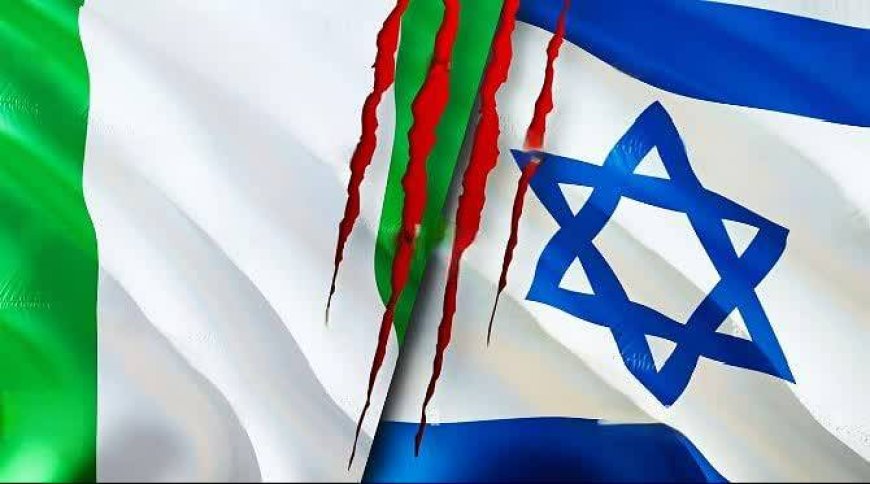Africa's Geopolitical Chessboard: Investigating Israel's Hand in Destabilizing Nigeria
Africa's Geopolitical Chessboard: Investigating Israel's Hand in Destabilizing Nigeria

Michael Freeman, Israel’s ambassador in Nigeria, reports an annual bilateral trade volume ranging from 200 to 250 million dollars. Moreover, the Nigerian market, alongside Ethiopia, South Africa, Ghana, Kenya, and Uganda, collectively accounts for an impressive 75 percent of the Zionist regime's exports to the African continent. Reports from 2001 indicate that the Zionist regime’s investments and exports to Nigeria alone reached approximately 105 million dollars in 2022.
This prosperous partnership created significant economic opportunities for both Tel Aviv and Abuja thanks to the combination of Nigeria's sizable consumer base and the Israeli regime's expertise and cutting-edge technology.
Among the Nigerian population, the Igbo Jews proudly refer to themselves as the "Sons of Israel" and hold the belief that their migration from Palestine to West Africa occurred approximately 1500 years ago. They claim ancestral lineage from the tribes of Gad, Zebulun, and Manasseh. Notably, the Igbo community in Nigeria employs the Hebrew script within their temples and maintains strong connections with American Jews, particularly those residing in Boston.
The customs and rituals observed by Nigerian Jews, including regulations concerning eating and drinking, Kosher foods, slaughtering practises, and religious festivals, are rooted in Jewish religious traditions. Some Nigerian ethnic groups, particularly those in Igboba and Abuja, profess Judaism and maintain robust connections with Israeli and American Jewish organisations. Estimates suggest that the number of Nigerian Jews is around 4,000, although some sources claim higher figures, suggesting a presence of approximately 30,000 Jews in the country.
The former ambassador of the Israeli regime in Nigeria, Moshe Ram, played a significant role in advancing the influence of the Israeli regime in Nigeria. His appointment in 2007 led to improved relations between the two sides. Moreover, Ram's influence extended beyond Nigeria, as he played a crucial role in expanding the Israeli regime's interests throughout West Africa. Presently, Michael Freeman serves as the Israeli regime's ambassador to Nigeria, continuing the efforts initiated by his predecessor.
In 2006, an important meeting took place in Abuja, the capital of Nigeria, bringing together Israeli and Nigerian businessmen and industrialists. The event marked the beginning of a growing relationship between the two nations. In the same year, the Zionist and Nigerian foreign ministers signed a memorandum of understanding, demonstrating their commitment to supporting each other in international forums. With the inauguration of Goodluck Jonathan as President of Nigeria in 2010, bilateral relations reached new heights. Nigeria emerged as Israel's 20th-largest trading partner in terms of exports. Between 2012 and 2013, the volume of Nigeria's exports to Israel increased significantly, from $165 million to $276 million. This period also witnessed numerous exchanges of high-level political and economic delegations between Nigeria and Israel. Furthermore, the International Cooperation Organisation of Israel (MASHAV) successfully implemented and carried out multiple construction projects across Nigeria.
Furthermore, the Zionist regime, which has strong ties with the Igbo tribe living in the eastern region of Nigeria, seeks to leverage these connections so that it can effectively exert influence over the central administration in Abuja and the country's Muslim majority, particularly the Shiite community. Since the most important political demand of Muslims and the Islamic movement in Nigeria is to advocate for the cessation of diplomatic relations between Nigeria and Israel, in recent years Tel Aviv and Washington have sought to lend support to dependent and corrupt rulers in Nigeria, facilitate an environment conducive to the mischievous activities of Boko Haram, and impose stricter measures against the country's Shiite leaders, particularly Sheikh Ibrahim Zakzaky.
In late 2015, Sheikh Zakzaky made a firm request to sever ties with the Zionist regime in a letter addressed to the central government in Abuja. Shockingly, the government responded with a violent crackdown, resulting in the loss of approximately 1,000 innocent lives and the destruction of the Baqiyatallah Hussainiyya in Zaria. Regrettably, this appalling crime was boycotted by foreign media outlets, failing to acknowledge the horrible reports presented by Human Rights Watch on this matter. Following this tragic incident, the Nigerian army detained Sheikh Zakzaky and imposed restrictions on Shia religious activities.












































